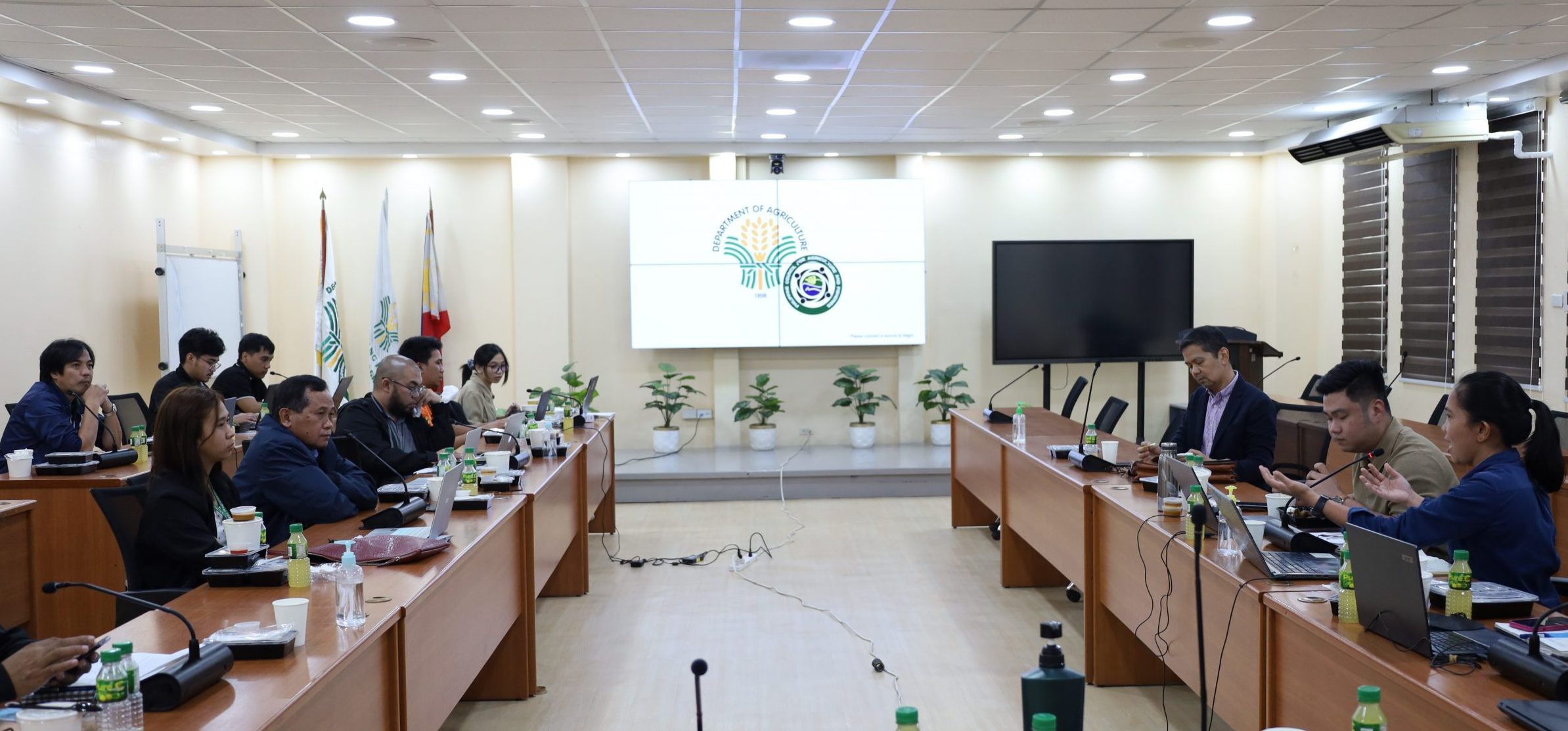
The National Sectoral Committee on Agricultural and Fisheries Mechanization (NSC on AFMech) convened on July 28, 2023 to gather best practices and lessons learned from farm clustering programs that could address the key concerns in the agricultural and fishery mechanization.
The Philippine Council for Agriculture and Fisheries (PCAF), in collaboration with the Bureau of Agricultural and Fisheries Engineering (BAFE), initiated the face-to-face meeting to reconvene the Technical Working Group (TWG) for Contiguous Farming.
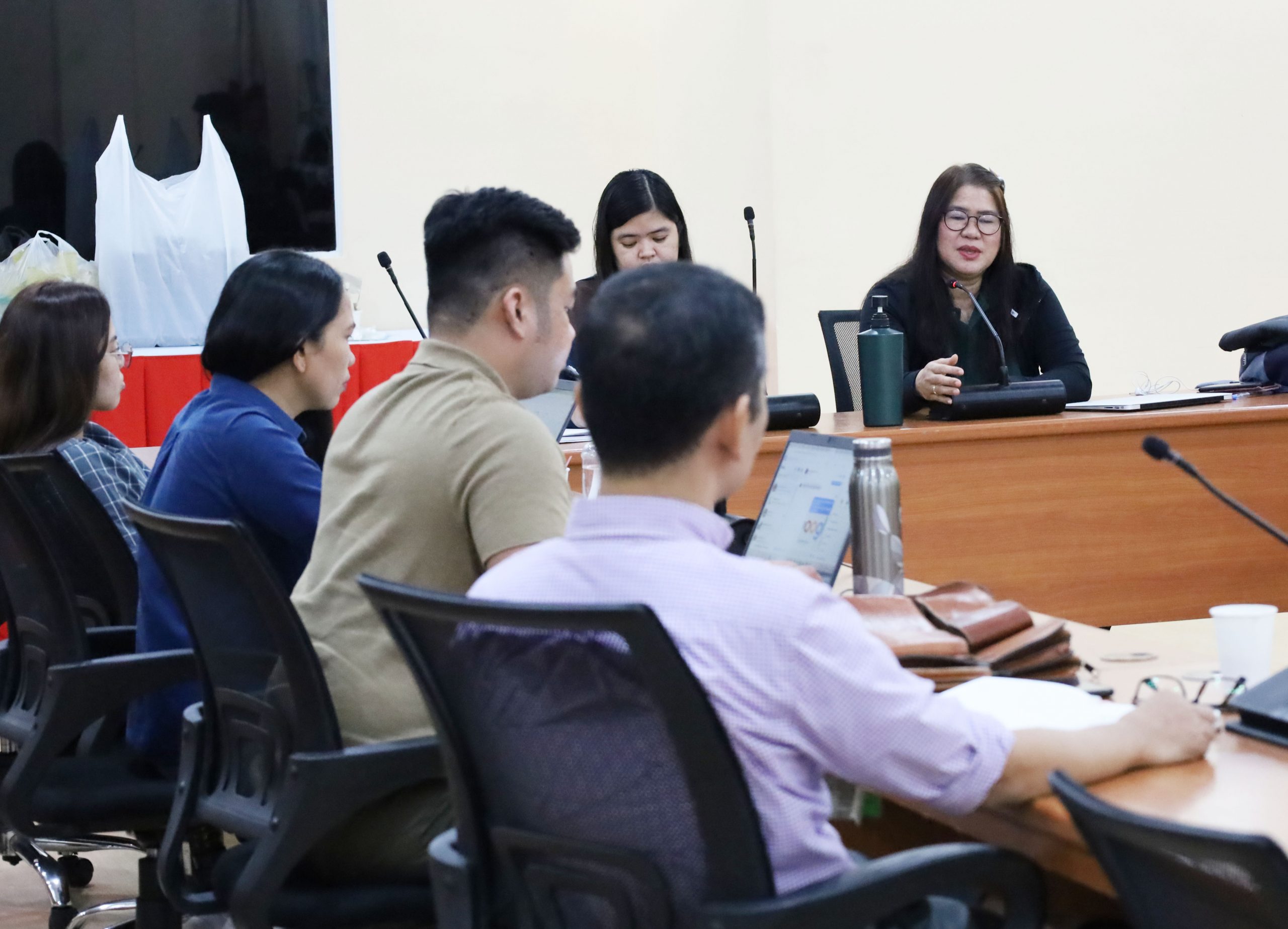
“If we could identify the best practices and learnings, we could work on how to maximize the use of farm mechanization and postharvest facilities,” said Engr. Emer-Rose Asug of BAFE Programs and Projects Management Division.
The group invited the Department of Agrarian Reform (DAR), Sugar Regulatory Administration (SRA), Philippine Rice Research Institute (PhilRice), National Tobacco Administration and Farm and Fisheries Clustering and Consolidation (F2C2) Program.

Ricky Paras Sunga, a representative from DAR, presented the Climate Resilient and Farm Productivity Support Program. It is the Department’s response to the challenges of climate change in agrarian reform communities and their efforts in land consolidation. He shared how DAR handled the concerns of the farmers’ group related to the collateralization of Certificate of Land Ownership Award for credit institutions through a Department Order.
Sunga also committed to coordinating closely with other Department of Agriculture agencies and programs present in the meeting on the synchronization of data clustering related to the Agrarian Reform Beneficiary Organizations (ARBOs).
He also suggested that ARBOs under DAR should be endorsed to the F2C2 Program. Thus, the organizations will be linked to various DA national banner programs for possible funding under DA’s 2024 budget.
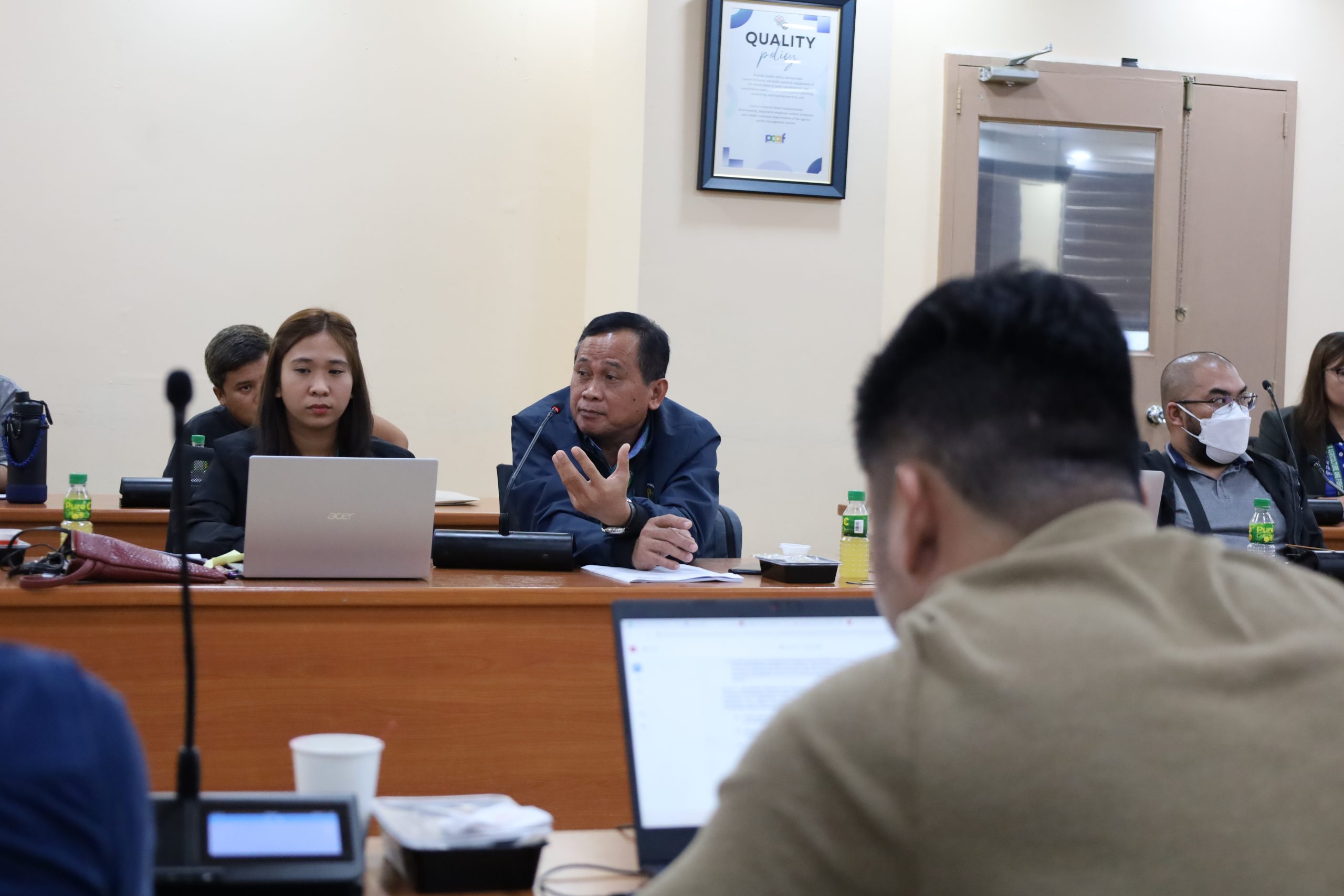
Meanwhile, Engr. Ador Bacani of SRA presented the Sugarcane Block Farming (SBF) which aims to increase the productivity of sugarcane farms owned or operated by members of the ARBOs, including cooperatives and small farmers’ associations.
Its main purpose is to take advantage of the economies of scale in sugarcane production to ensure the efficient use of farm machinery, volume purchase of inputs and direct linkage to private and government agencies. Economies of scale better known as the increase of results or goods where the average cost of production decreases.
To qualify in SRA’s block farming, small farms should have an aggregated area of at least 30 hectares situated within a two-kilometer radius, duly registered organizations, and the members should be farmers with small land holdings of five hectares and below, including ARBs.
It is anchored on the idea that sugarcane farming, being a plantation crop, becomes more productive and profitable under large-scale cultivation and entails a holistic approach to achieving its goals by providing technical assistance, farm resources, and enriching the farmers’ capacity and decision-making skills.
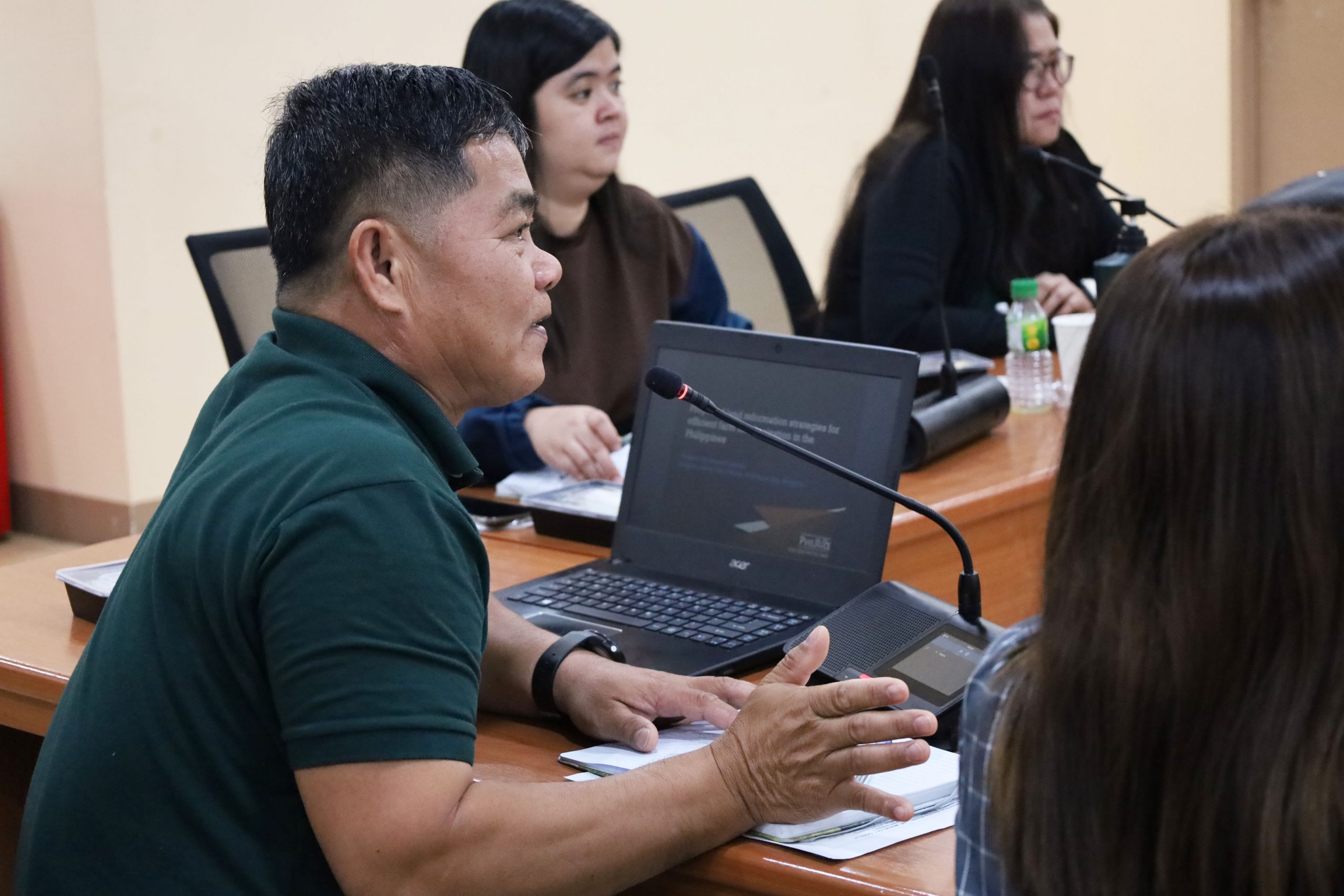
On the other hand, PhilRice’s Supervising Science Research Specialist Dr. Elmer Bautista presented the Proposed Land Reformation Strategies for Efficient Farm Mechanization in the Philippines. The group suggested tapping possible common sites for the study.
According to Dr. Bautista, the study suggests solutions to address the challenges of the government in farm clustering and using farmers’ organizations to implement mechanization programs. He particularly suggested a more efficient irrigation system and drainage system, accessibility of all plots to farm machines, no destructive pass from farm to farm, refraining from sinking of machines, and no counterproductive timing of planting.
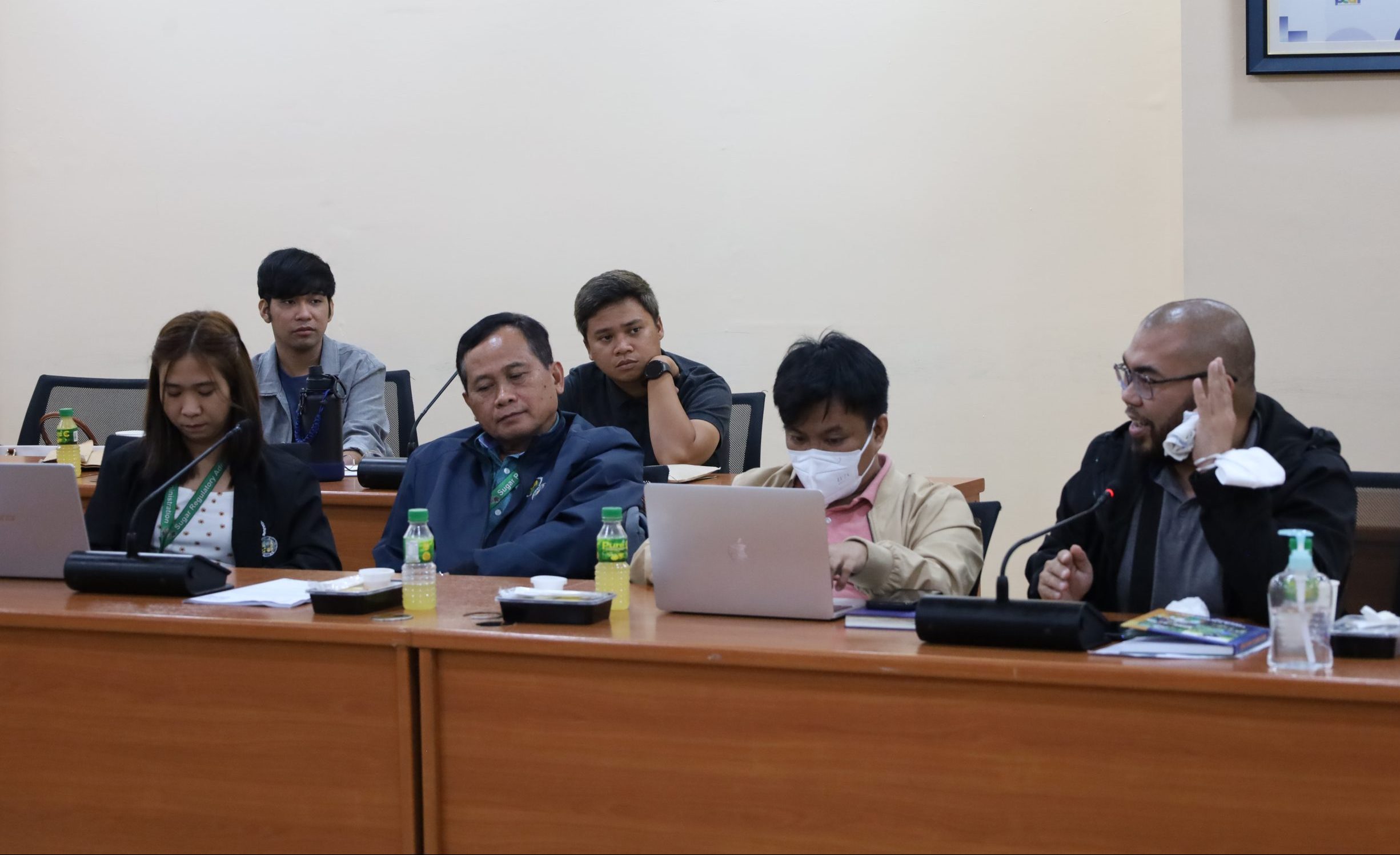
The TWG also updated its members on DA’s F2C2 Program and discussed the results framework, goal, purpose and outcome, and outputs. The Program aims to establish better access to credit and financing, encourage active big-brother and small-brother partnerships, and raise the overall productivity of the agriculture sector. The clusters formed are expected to create the Cluster Development Plan (CDP), a five-year plan focusing on the establishment of the enterprise.
The F2C2 Program encourages mechanization through the inclusion of machinery in interventions of various clusters and should be endorsed to the DA banner programs, agencies, and other stakeholders in their respective regional TWGs.
Upon endorsement, the cluster would be vouched for inclusion in the specific program’s target interventions and include the clusters as target beneficiaries.
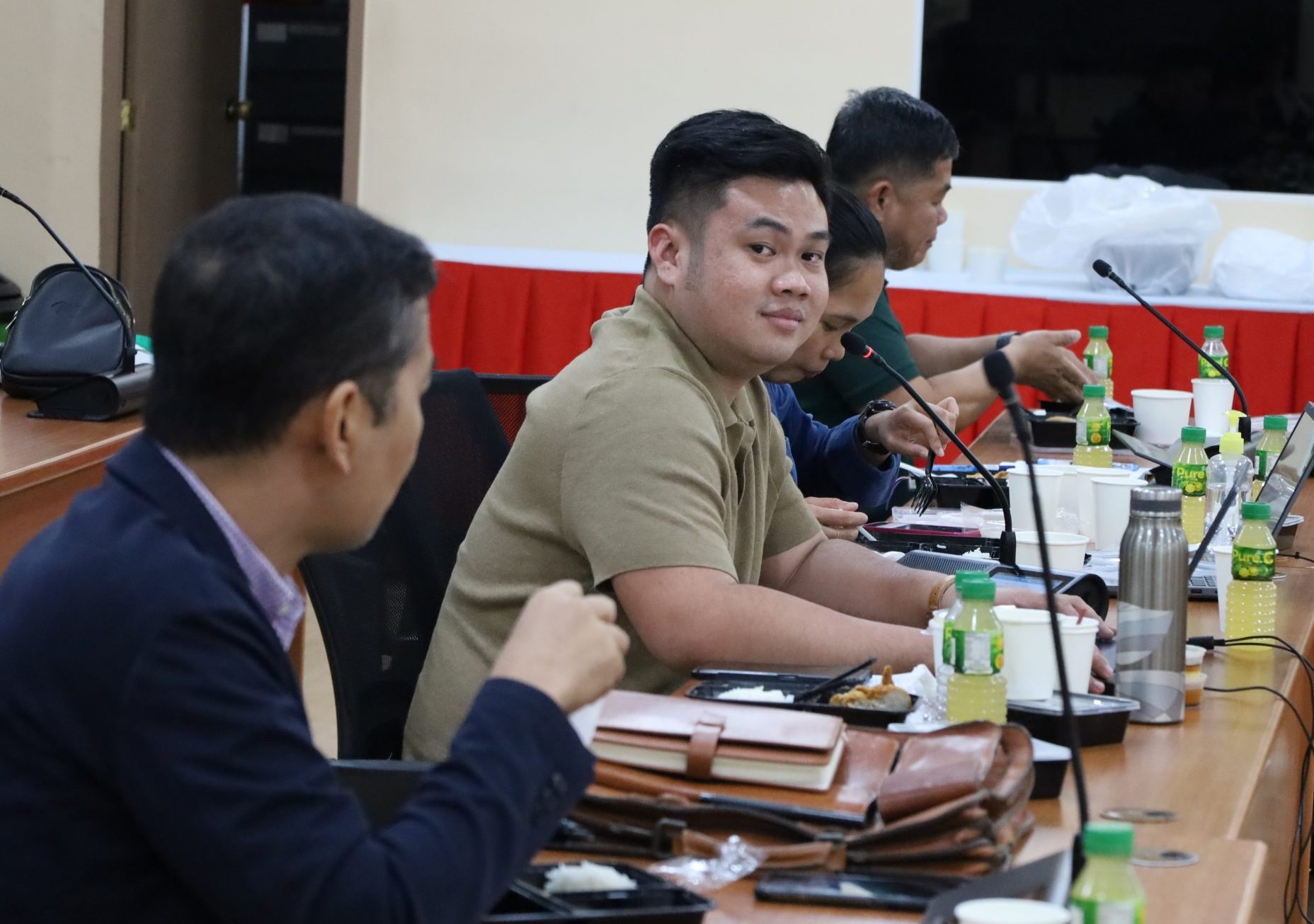
The BAFE also provided an update on the establishment of Agricultural-Fisheries Machinery and Equipment Services Centers (AFMESC) to answer the challenges in mechanization including the lack of economies of scale due to small-sized and irregular-shaped farms, limited access to modern and efficient agri-fishery machines, poor operation and maintenance due to limited number of skilled operators and technicians, and poor access to after-sales and machinery services.
Currently, the AFMESC has 52 validated sites in 15 regions, comprising farmers’ cooperatives and associations, private farm service providers, DA-accredited civil society organizations, local government units, and state universities and colleges. BAFE explained that the AFMESC is a common service facility with an appropriate set of farm machinery that can provide custom farm mechanization services and support services.
The major services of AFMESC include land preparation, transplanting, harvesting, hauling, drying and milling. Other support services consisted of after-sales service, repair and troubleshooting, and training services.
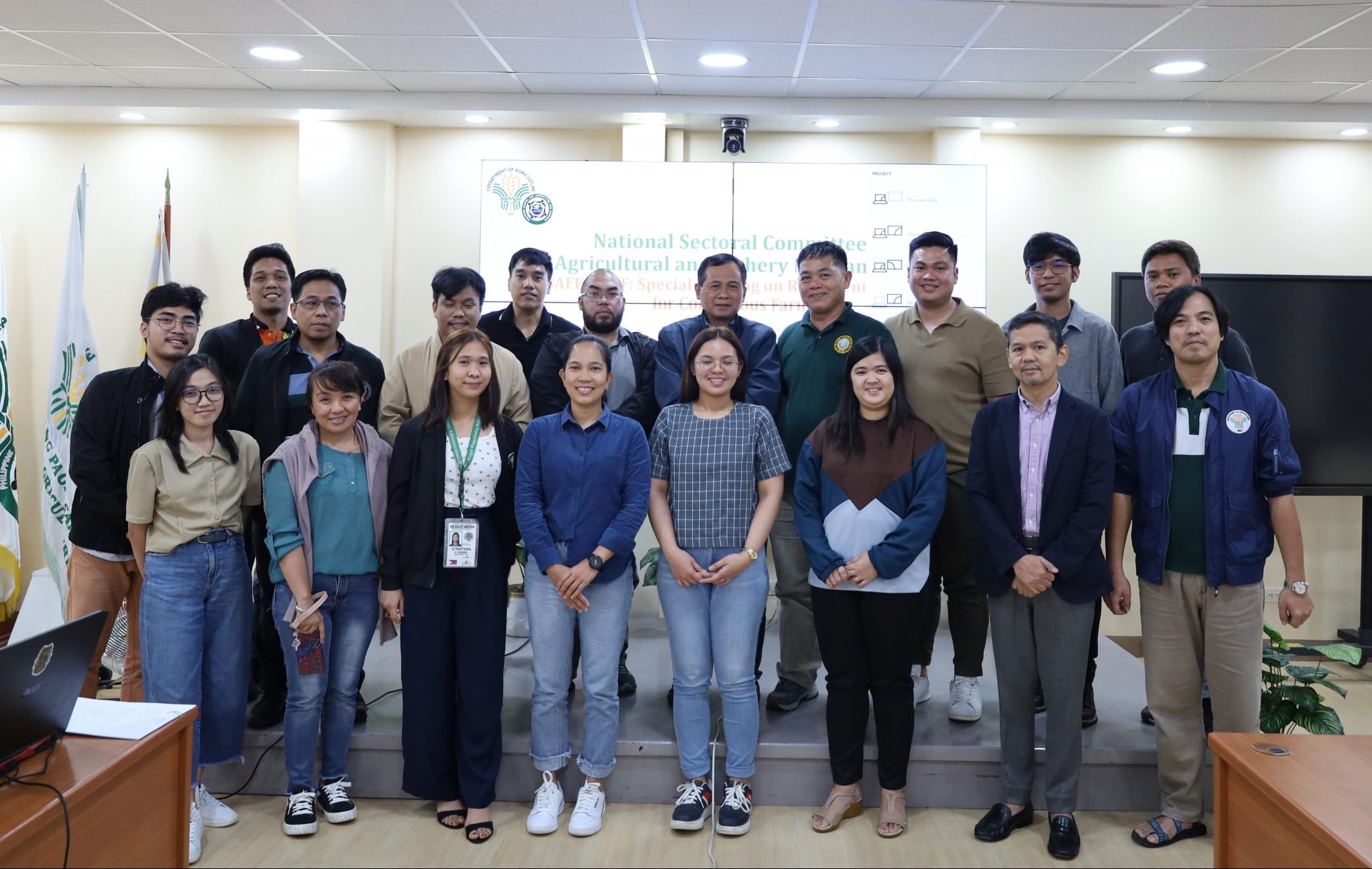
The group suggested that BAFE should explore possible informal schemes of AFMESC and strengthen partnerships with its suppliers. |JC











